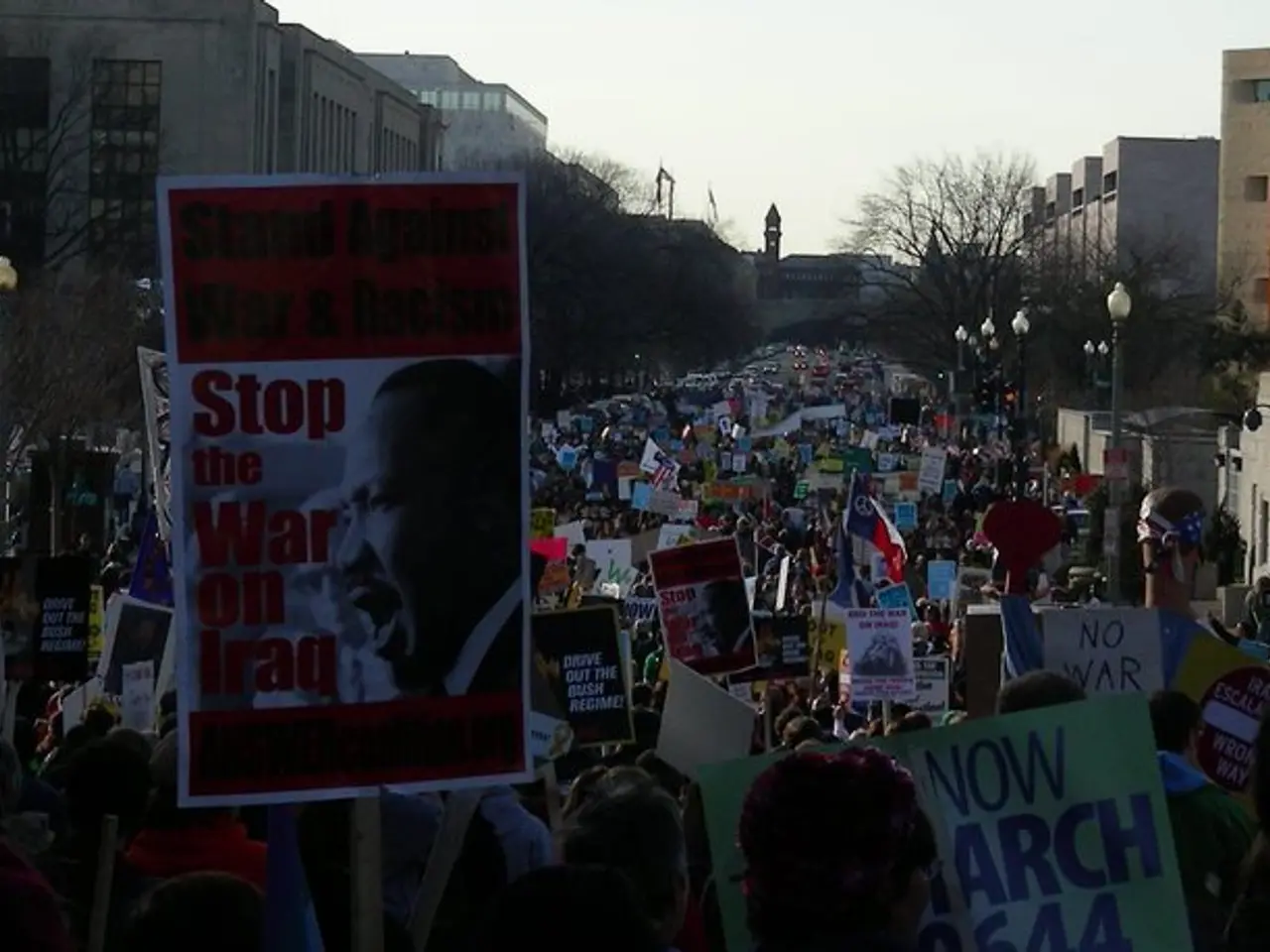groundbreaking Verdict on Nationwide Injunctions: Supreme Court Sets New Limits
In a landmark decision concerning birthright citizenship, the Supreme Court imposes constraints on the utilization of nationwide injunctions by judges.
Washinton D.C. - In a landmark decision, the Supreme Court has put a cap on the use of nationwide injunctions, restricting federal judges' power to block the implementation of controversial policies from both Democratic and Republican presidential administrations.
Justice Amy Coney Barrett, author of the majority opinion, stated emphatically, "Federal courts do not exercise general oversight of the Executive Branch; they resolve cases and controversies consistent with the authority Congress has given them." The 6-3 ruling follows a highly-anticipated case concerning President Trump's executive order aiming to revoke birthright citizenship.
Trump's executive order threatened the Constitutional amendment guaranteeing citizenship to all individuals born in the United States, regardless of parents' immigration status. In response, three district courts issued universal injunctions, preventing the order's national implementation while legal challenges moved forward.
The high court granted the Trump administration's request to restrict the reach of these injunctions, except where necessary to provide complete relief to those directly affected by the order. The court made it clear that universal injunctions likely exceed the equitable authority granted to federal courts by Congress.
While the Supreme Court's decision doesn't address the constitutionality of the birthright citizenship order, it gives the administration 30 days to issue public guidance regarding policy implementation, leaving room for further challenges. President Trump hailed the decision as "a monumental victory for the Constitution, the separation of powers, and the rule of law."
However, Justice Sonia Sotomayor, in her dissent, accused the Supreme Court majority of abdicating its role in protecting the rule of law. Sotomayor urged individuals who may be impacted by the birthright citizenship plan and lower courts to act swiftly, file class-action lawsuits and seek class certification.
The dispute over universal injunctions has long been a source of contention between Democratic and Republican administrations, with both sides questioning the constitutionality of these sweeping orders that stymie implementation of their respective policies amid Congressional gridlock. The number of nationwide injunctions has surged in recent years, with 86 issued during Mr. Trump's first term and 28 during Joe Biden's presidency.
Critics argue that universal injunctions undermine the rule of law and grant too much power to federal judges. On the other hand, supporters claim that these orders provide an essential check on the Executive Branch's power by ensuring that policies are legal and constitutional.
The Supreme Court's decision marks a significant limitation on the use of universal injunctions, requiring future rulings to focus on the parties directly involved in the case rather than halting enforcement nationwide. This ruling could significantly impact how future executive policies are challenged and implemented, shifting the balance of power between the branches of government.
- The groundbreaking decision by the Supreme Court on nationwide injunctions has set new limits, dictating that federal courts should only provide relief to parties directly affected by a controversial policy, rather than issue universal injunctions that halt its national implementation.
- The ruling on universal injunctions could have far-reaching implications on policy-and-legislation, as it marks a significant shift in the balance of power between the branches of government, potentially altering how future executive policies are challenged and implemented.
- The controversy surrounding universal injunctions has been a point of tension between Democratic and Republican administrations, with both sides questioning their constitutionality, and the surge in the number of these orders in recent years adding to the debate on their impact on the rule of law and the separation of powers.







